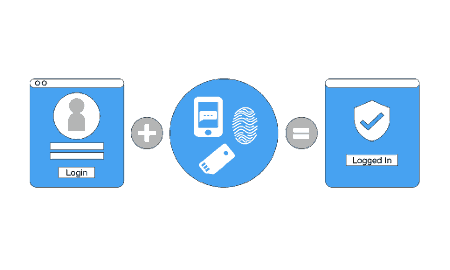Azure AD is a highly effective IDP that was built as a successor to Active Directory (AD) to accommodate newer, cloud-centric organizations. AD does not work natively in the cloud, so Azure is an effective solution for many organizations looking to modernize.
But due to network environment setups, some organizations have discovered limitations with Azure. In order to maximize the Azure experience, you may want to consider vendors that provide certificate-based authentication protocols and excellent network management tools.
Limitations of Azure Network Security
While Azure is a useful alternative to AD for organizations moving to the cloud, it’s not without limits. Some organizations will experience inconveniences and disruptions in their normal network operations. Below we’ve highlighted some of the problems organizations might face.
Azure Conflicts with Legacy Environments
Considering that Azure is a relatively newer product, some organizations with older network infrastructure may find that they have issues connecting to the Azure IDP. Some applications are not compatible, and you could experience authentication barriers that prevent users from accessing what they need.
Azure does not support Group Policy and LDAP. As a result, it also doesn’t support NPS because NPS relies on LDAP for directory communication. Organizations with all this Microsoft infrastructure are unable to upgrade to the cloud and benefit from stronger network security.
Additionally, Azure doesn’t provide system management tools to give an overview and control of the entire network. They only include software to manage the user directory, so additional tools will need to be installed to overview these parts of the network.
Authenticating Non-Microsoft Devices
If your network infrastructure has difficulty supporting devices from major non-Microsoft vendors, there is going to be a significant efficiency issue within your organization. The modern device landscape is incredibly diverse, and an organization must be able to accommodate all the most common device types and manufacturers.
Currently, to authenticate non-Microsoft devices with Azure, add-ons need to be configured to create a work around. This process can be cumbersome, and the only alternative is to offer a separate authentication procedure, which is simply inefficient.
No Native Certificate Support
Time and again, passwords have shown to be an inadequate form of authentication to deal with the modern threats facing organizations. They’re too easily stolen, cracked, or circumvented to be considered a viable form of network security. While adding Multi-Factor Authentication (MFA) can help prevent many attacks, relying on credentials leaves a massive vulnerability in your network security.
In response, many organizations have made the transition to certificate-based authentication. Certificates exceed passwords in every way, especially when accompanied by an effective certificate onboarding software.
Azure does not provide native support for x.509 digital certificates, so any organization wanting to make the shift must rely on 3rd party vendors that can accommodate an Azure network. The choice in vendors can drastically affect an organization’s certificate experience, especially if they do not receive support in setting up a PKI or effective certificate management tools.
Azure Support from SecureW2
Integrating Azure with SecureW2’s certificate services is an excellent solution for improving the security and overall usability of any network. SecureW2’s certificate solutions are vendor neutral and easy to configure. They integrate with any network infrastructure and can support devices from any major vendor.
SecureW2 provides everything an organization needs to begin authenticating certificates in record time. The solution can be easily set up in hours and begin distributing certificates the day it’s received. Included with our certificate solution is:
- Turnkey PKI
- Certificate Authority (CA) generation
- Network, certificate, and user management
- Cloud RADIUS
- JoinNow onboarding software
- Technical support during every step
- And the latest in RADIUS technology, Dynamic RADIUS
If an organization already possesses any of the above, we can integrate with existing infrastructure. We’re able to easily connect Azure directory services and populate certificates with that information so only approved Azure users are authenticated to the network. 
Azure can also work with SecureW2 to provide MFA to users. With additional authentication levels comes heightened security and a greater chance of thwarting any potential data breaches.
Many organizations have found success adding FIDO 2.0 security keys like Yubikey to their authentication process. These security keys can be equipped with a certificate for highly secure network authentication.
Azure networks are growing in popularity, but ensuring the network is properly protected is first priority for organizations. If your network is still authenticated solely through passwords, it’s important to consider how important network security is.
For stronger authentication security and a network experience that operates efficiently, consider combining Azure with certificate services from SecureW2. Check out our pricing page to see if our cost-effective certificate solutions can fit your organization.






